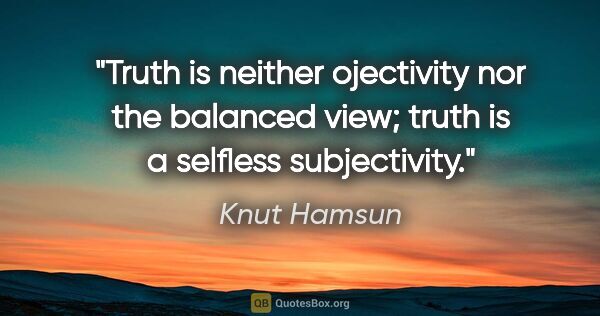Nor Quotes (page 52)
The images were gone, but Calvin was there, was with her, was part of her. She had moved beyond knowing him in sensory images to that place which is beyond images. Now she was kything Calvin, not red hair, or freckles, or eager blue eyes, or the glowing smile; nor was she hearing the deep voice with the occasional treble cracking; not any of this, but - Calvin. She was with Calvin, kything with every atom of her being, returning to him all the fortitude and endurance and hope which he had...
Madeleine L'Engle
But for me there is neither Monday nor Sunday: there are days which pass in disorder, and then, sudden lightning like this one. Nothing has changed and yet everything is different. I can't describe it, it's like the Nausea and yet it's just the opposite: at last an adventure happens to me and when I question myself I see that it happens that I am myself and that I am here; I am the one who splits in the night, I am as happy as the hero of a novel.
Jean-Paul Sartre
To be in the weakest camp is to be in the strongest school. Nor can I imagine anything that would do humanity more good than the advent of a race of Supermen, for them to fight like dragons. If the Superman is better than we, of course we need not fight him; but in that case, why not call him a Saint? But if he is merely stronger (whether physically, mentally, or morally stronger, I do not care a farthing), then he ought to have to reckon with us at least for all the strength we have. If we...
Gilbert K. Chesterton
Is your cucumber bitter? Throw it away. Are there briars in your path? Turn aside. That is enough. Do not go on and say, "Why were things of this sort ever brought into this world?" neither intolerable nor everlasting - if thou bearest in mind that it has its limits, and if thou addest nothing to it in imagination. Pain is either an evil to the body (then let the body say what it thinks of it!)-or to the soul. But it is in the power of the soul to maintain its own serenity and tranquility. . . .
Marcus Aurelius
Antonio: Will you stay no longer? nor will you not that I go with you? Sebastian: By your patience, no. My stars shine darkly over me; the malignancy of my fate might, perhaps, distemper yours; therefore I shall crave of you your leave that I may bear my evils alone. It were a bad recompense for your love to lay any of them on you.
William Shakespeare
A full grown horse or dog is beyond comparison a more rational, as well as a more conversible animal, than an infant of a day, a week, or even [a] month old. But suppose the case were otherwise, what would it avail? The question is not Can they reason? nor, Can they talk? but, Can they suffer?
Jeremy Bentham
By the sweet power of music: therefore the poet did feign that Orpheus drew trees, stones and floods; since nought so stockish, hard and full of rage, but music for the time doth change his nature. The man that hath no music in himself, nor is not moved with concord of sweet sounds, is fit for treasons, stratagems and spoils; The motions of his spirit are dull as night and his affections dark as Erebus: Let no such man be trusted. Mark the music.
William Shakespeare
Time has its revenges, but revenge seems so often sour. Wouldn’t we all do better not trying to understand, accepting the fact that no human being will ever understand another, not a wife with a husband, nor a parent a child? Perhaps that’s why men have invented God – a being capable of understanding.
Graham Greene
Pacifism is objectively pro-fascist. This is elementary common sense. If you hamper the war effort of one side, you automatically help out that of the other. Nor is there any real way of remaining outside such a war as the present one. In practice, 'he that is not with me is against me'.
George Orwell
Neither loss of father, nor loss of mother, dear as she was to Mr Thornton, could have poisoned the remembrance of the weeks, the days, the hours, when a walk of two miles, every step of which was pleasant, as it brought him nearer and nearer to her, took him to her sweet presence - every step of which was rich, as each recurring moment that bore him away from her made him recal some fresh grace in her demeanour, or pleasant pungency in her character.
Elizabeth Gaskell
